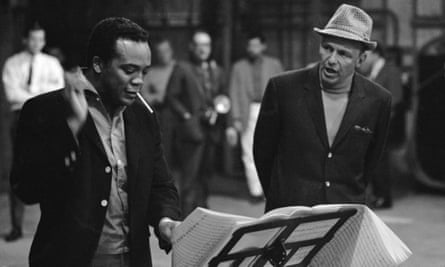Of all the lessons I learned from Quincy, one that always stays with me is something I read in his memoir, Q: The Autobiography of Quincy Jones, a beautiful, unparalleled story of music, civil rights, family and generosity. He was in his mid-20s, already a celebrated musician and arranger for Ray Charles and Dinah Washington, and he walked away from it all, packed up and moved to Paris to study music theory and composition under Nadia Boulanger, the famous composer and mentor.
Imagine reaching the pinnacle of success, especially as a young Black musician in segregated 1950s America, and saying thanks, but I’m starting over for the sake of chords and harmony. I fantasise about having that kind of courage. The guts to drop everything, leave the rat race and bury myself in theory and orchestration, and return a musical Jedi master, instead of freezing like a deer in headlights at Abbey Road while conductors toss around terms that may as well be in Klingon.
But that’s the peril of holding Quincy as a yardstick. He’s an impossible standard. For producers and arrangers like me, he didn’t just raise the bar; he hid it where no one could reach.
I was lucky enough to spend time with Quincy. I was once engaged to his daughter, Rashida, with whom I remain close to this day. Over the years, he would send me kind notes – he had a particular fondness for Amy [Winehouse] – and we’d often hang out whenever I played the Montreux jazz festival, his beloved stomping ground.
Seeing him there, stage right, seated in his director’s chair – looking every bit the debonair godfather of music, smiling back at you – elicited a wild mix of emotions. The greatest producer and arranger of all time, watching your every move, was utterly terrifying. And yet he only radiated generosity. All he wanted was for you to win, to shine. He had already achieved the unimaginable. Now he existed as something rare and beautiful – a benevolent cheerleader for the wonder of music itself.
A few years back, we worked together on a song for Rashida’s documentary about him, Quincy. Quincy arrived with the A-team in tow – his Off the Wall squad, no less. He was in his late 80s, quieter now, but the room still tilted towards him.
At one point, I got stuck on a trumpet solo – take after take, and I couldn’t put my finger on what was wrong. Quincy, silent all day, finally piped up: “Tell him to try a cup mute.” “Excuse me, Q?” He nodded. “Cup mute.” The trumpeter took out a cup mute, and just like that, the sound I’d been chasing appeared. Quincy knew – intuitively, spiritually – what I was searching for and what the song needed. He was a guru and musical maestro.

And of course, he returned from Paris in the 1950s to gift us with half a century of matchless work, plus the greatest arranged and produced pop album of all time, Off the Wall, and the biggest selling, Thriller. And timeless masterpieces – [USA for Africa’s] We Are the World, his arrangement of Fly Me to the Moon, [Lesley Gore’s] It’s My Party, Soul Bossa Nova, [George Benson’s] Give Me the Night – each carrying his special blend of genius and joie de vivre.
My favourite of Quincy’s expressions about the creative process is, “You gotta leave a little space to let God in the room.” It’s not about religion but about recognising a force greater than ourselves when we sit down to create. Too often in the studio, we get tangled up in outside pressures – chasing a hit, worrying about what people want to hear, or getting carried away by our own self-importance. All these distractions get in the way of the truth. Great music isn’t something we control. It flows through us if we’re humble enough to step back and leave space for something higher.
Losing Quincy is like a black hole swallowing part of the musical universe. But his work will live for ever, as will his lessons. Keep striving for that deeper knowledge. Always leave space for something bigger than yourself. Because sometimes, magic happens when we get out of the way.
Source: theguardian.com


